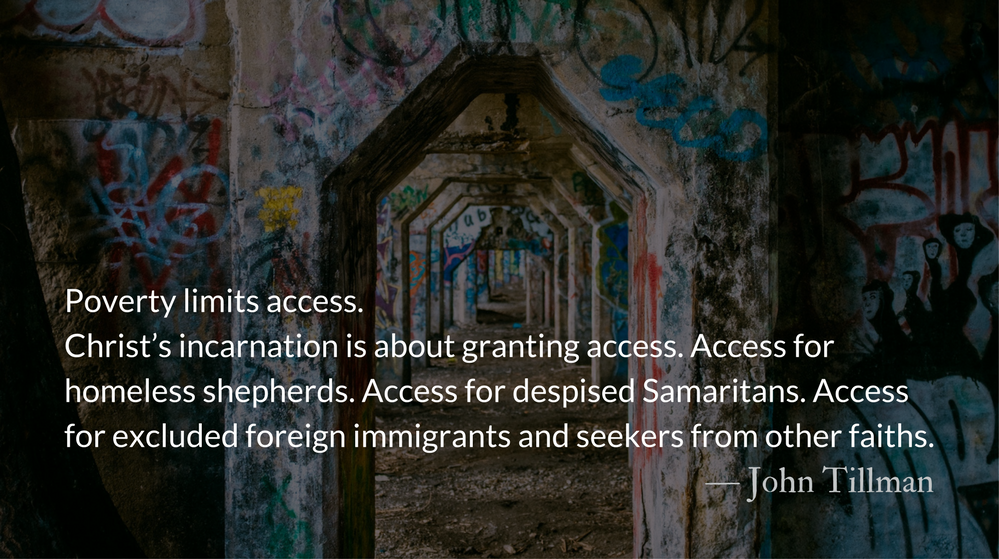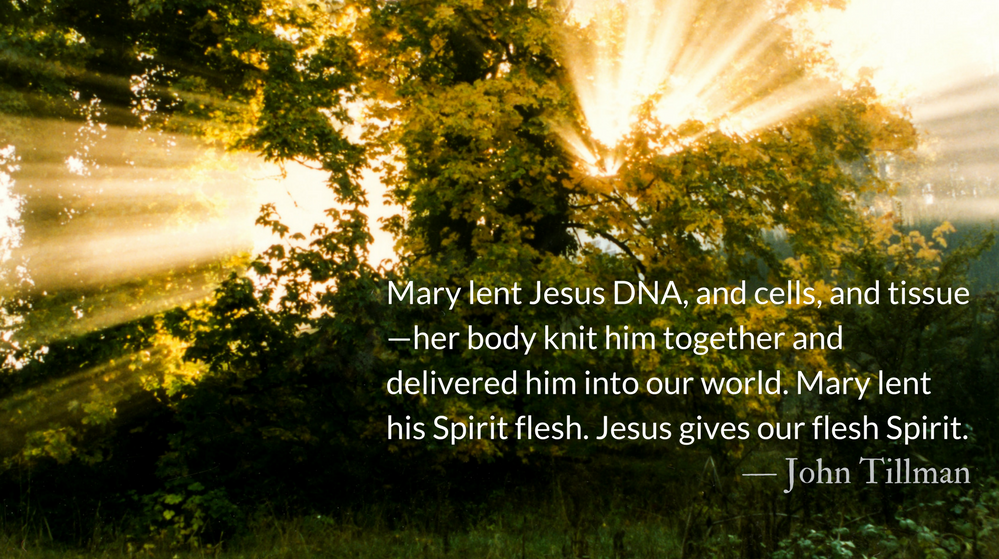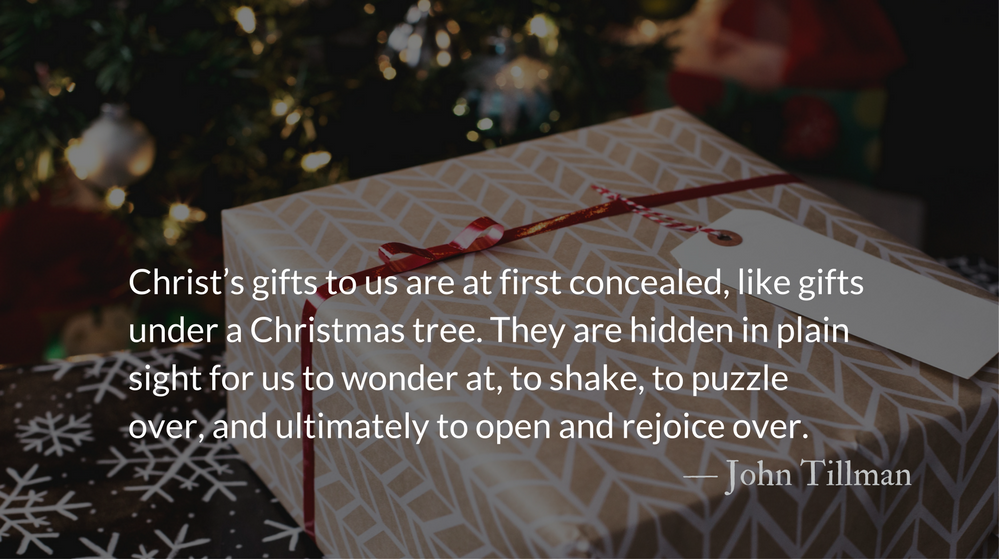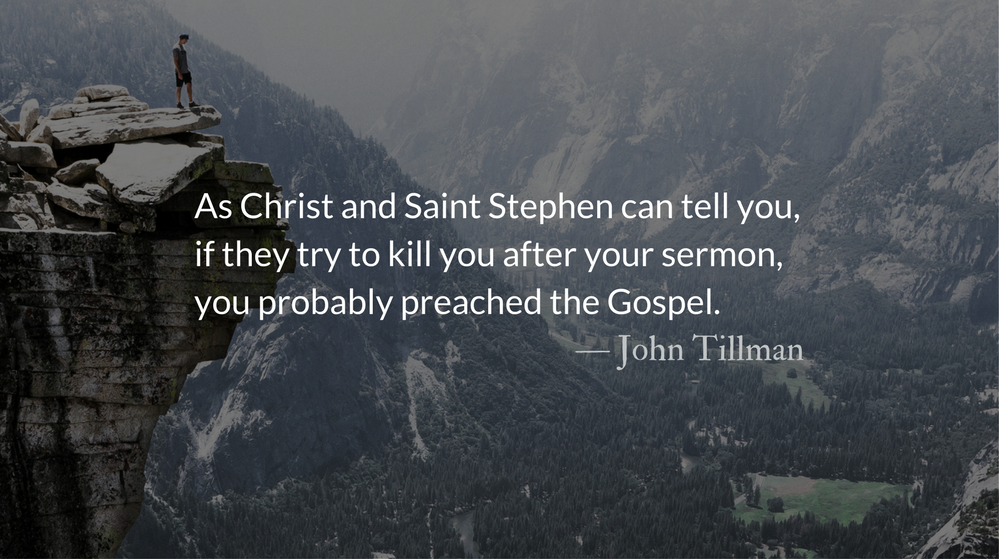Scripture: Luke 4.18
…to proclaim good news to the poor…
Luke 1.52-53
He has brought down rulers from their thrones
but has lifted up the humble.
He has filled the hungry with good things
but has sent the rich away empty.
Reflection: Good News to the Poor :: Epiphany
By John Tillman
When Mary sang about filling the hungry with good things, poverty and many other personal tragedies were considered markers of spiritual failure. Faithful Jews would assume that some sin in your life must have occured for you to fall into trouble.
Today we also see poverty as a result of sin. But the God we believe the poor have sinned against is the god of Materialism and the god of Competence. When the pursuit of happiness is enshrined as humanity’s highest good, failing to achieve it is a marker of spiritual or moral poverty.
Whatever the causes of poverty, its outcomes are consistent. Poverty limits access. The poor have little access to good schools, to transportation, to healthcare, to legal aid—the very things they need to break the cycle of poverty.
Christ’s incarnation is about granting access. Access for homeless shepherds. Access for despised Samaritans. Access for excluded foreign immigrants and seekers from other faiths. The Annunciation, the Magnificat, and Christ’s Nazareth sermon all prominently focus on granting access to the poor and the outcast.
It would be easy to read the Magnificat merely as a redistributive command. It is more than that. It would also be easy to infer that Christ is actively cursing or punishing the rich by sending them away. But it is more complex than that.
The hungry aren’t filled with material goods taken from the rich. They are filled with “good things” that will satisfy their hunger. The rich don’t go away empty because Christ is ambivalent toward them or because he is taking punitive action on behalf of the poor.
Like the rich young ruler, the rich who go away empty do so because they came to Jesus clinging to their emptiness and can’t be convinced to give it up. As Christ said, regarding the rich young ruler, “What is impossible with man is possible with God.”
Wealthy or not, we must become poor in spirit to receive Christ’s gift of Good News to the Poor. Our manifestation of Christ will be in direct proportion to our acknowledgement of needing him more than we need our comforts, our possessions, our luxuries, or even our daily bread.
Once we are filled with good things, we can now play our part in the Incarnation, passing on what we have been filled with—both physical and spiritual blessings—as a part of the manifestation of Christ.
A Reading
Jesus stood and cried out: “Let anyone who is thirsty come to me! Let anyone who believes in me come and drink!” — John 7:37
– From Christmastide: Prayers for Advent Through Epiphany from The Divine Hours by Phyllis Tickle.
Full prayer available online and in print.
Today’s Readings
2 Chronicles 34 (Listen – 6:23)
Revelation 20 (Listen – 2:49)
This Weekend’s Readings
2 Chronicles 35 (Listen – 5:25) Revelation 21 (Listen – 4:34)
2 Chronicles 36 (Listen – 4:26) Revelation 22 (Listen – 3:59)











